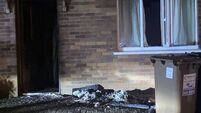School patronage: The end of the beginning and a long way to go
It was set up by Minister for Education Ruairi Quinn to advise him on how to proceed with the reconfiguration of patronage for the primary school sector. Currently, the Catholic Church controls around 92% of schools.
The Church hierarchy has acknowledged that the new reality of Irish society requires they divest themselves of some of these schools. How many, and which schools, is a serious bone of contention.













